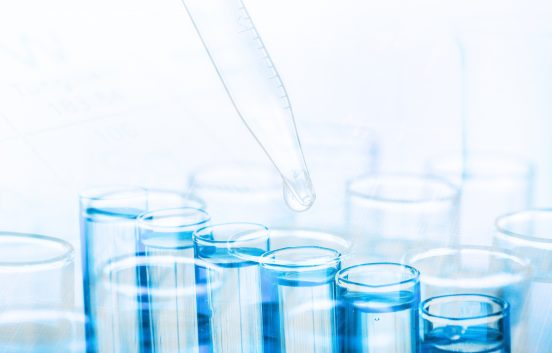A study led by the University of Edinburgh has looked at a new type of cell therapy for people with cirrhosis. They found that the treatment could reduce the risk of serious liver complications, and could in future help to prevent hospital admissions and deaths.
At the moment over 4,000 people die every year in the UK from liver cirrhosis. A liver transplant may be the only treatment option available to people with end-stage liver disease. But it is a very big operation, which needs lifelong aftercare, and there are not enough donated livers for everyone who needs one.
The innovative new therapy uses macrophage cells made from the patient’s own blood. Macrophages are part of the immune system and are associated with tissue repair.
The study is called ‘MATCH’ (MAcrophage Therapy for CirrHosis). The new results were presented at the American Association for the Study of Liver Diseases (AASLD) conference in Boston, USA on 13th November 2023. You can read a summary of the presentation here.
50 people with liver cirrhosis took part in the study at 3 hospitals in Scotland (Edinburgh Royal Infirmary, Ninewells Hospital in Dundee and Glasgow Royal Infirmary). They were randomly put into either a treatment group or a control group. The 26 people in the treatment group were given the macrophage cell treatment. The 24 people in the control group received standard medical care.
After a year, there were no liver-related complications in any of the people treated with macrophages. In the control group, 4 out of 24 people developed severe liver-related complications.
The study was led by Professor Stuart Forbes, clinical hepatologist and Director of the University of Edinburgh’s Institute for Regeneration and Repair. He has been studying the role of macrophages in liver disease over the past 10 years.
Professor Stuart Forbes said:
Liver cirrhosis is a condition affecting increasing numbers of people and can have serious health consequences. New treatments are required to help patients with cirrhosis and we are encouraged by these results.
The macrophages used in MATCH were fresh cells manufactured in an academic setting. Resolution Therapeutics, a UK biotech company, founded by Professor Forbes and Syncona (a leading life sciences investment fund) will continue the work. The company is focused on turning the new technology into a future commercial product to bring macrophage cell therapies to patients.
The company’s lead product, still under development, is called RTX001. It uses macrophages that are modified to improve their natural ability to repair. These modified macrophages are designed to be a more effective and durable treatment for end-stage liver disease.
Resolution Therapeutics is leading two further clinical studies to develop this new treatment. These are called the ‘OPAL’ and ‘EMERALD’ studies. The British Liver Trust is supporting this important research. You can read the full press release from Resolution Therapeutics here.
The OPAL study will look at how end-stage liver disease progresses. This will help with the development of the RTX001 treatment. The study is currently recruiting participants in 9 hospitals across the UK.
The EMERALD study will test the safety of RTX001 in people with end-stage liver diseaseand will begin to look at how well this new treatment works. This study is due to begin in 2024. The data from the University of Edinburgh’s MATCH study is extremely exciting as we progress Resolution’s own product RTX001 to treat end-stage liver cirrhosis with the OPAL and EMERALD studies.
These results show macrophage cell therapy is potentially transformative for patients with liver cirrhosis, helping avoid liver-related complications which can be fatal and put extreme pressure on health services.
Dr Amir Hefni, Chief Executive Officer of Resolution Therapeutics.
The Match study was funded by the Medical Research Council and ran from 2016 to 2022. The trial registration number is ISRCTN10368050.
You can read the full press release from the University of Edinburgh here.
